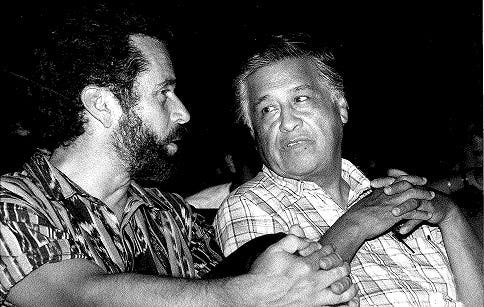Honoring César Chávez: A Call for Justice for Immigrant Farmworkers
As we gather to commemorate César Chávez on March 31, it’s essential to reflect not only on his incredible legacy but also on the pressing issues facing immigrant farmworkers today. While Chávez famously fought for the rights of farm laborers, his lessons resonate even more strongly in the context of today’s agricultural landscape.
The Backbone of Agriculture
The agricultural sector in the United States relies heavily on the labor of immigrant workers. This workforce works tirelessly under strenuous conditions, often enduring long hours in harsh environments to bring food to our tables. The reality is stark: without these workers, the agriculture industry would face an unprecedented collapse. Acknowledging this fact raises an important question: why do we continue to overlook the plight of these essential workers?
The Precarious State of Immigrant Workers
The current struggles of immigrant farmworkers are compounded by a troubling political climate. The enforcement of strict immigration policies creates a atmosphere of fear among workers. Many are hesitant to advocate for fair wages or improved working conditions, knowing that they might face deportation. This fear only serves to further exploit these individuals, forcing them to accept lower wages while providing invaluable services.
For a comprehensive overview of current immigration laws affecting farmworkers, visit Immigration Policy Center.
The Myth of Job Theft
Critics often argue that immigrant workers are "taking jobs" from native-born Americans. However, this perspective is fundamentally flawed. Numerous experiments have shown that when agricultural roles are restricted to local labor, they quickly fail. Many Americans are unwilling to engage in the physically demanding and hazardous work that farm labor entails, particularly under current wage standards and working conditions.
For a deeper insight into the realities of agricultural labor in America, explore the report from the United States Department of Agriculture.
A Necessary Reality Check
As we honor César Chávez this year, it’s crucial to confront the harsh realities that immigrant laborers face. They are not just workers; they are individuals who support their families under extreme duress. The fruits of their labor not only nourish our bodies but are also essential to our economy. Nevertheless, these workers often struggle to make ends meet.
Collective Responsibility
In light of these injustices, it is imperative that we all take action. Advocacy plays a vital role in addressing these issues. By amplifying the voices of immigrant workers and bringing attention to their needs, we can push for changes that ensure fair treatment and wages. Political leaders must understand that ignoring the rights of farmworkers ultimately harms our society as a whole.
For resources on how to advocate for immigrant workers, check out Farmworker Justice.
A Call for Action
It is time to move beyond mere acknowledgment and take substantive action to support immigrant farmworkers. Raise your voice in political discussions and ensure that farm laborers are treated with the dignity and respect they deserve. This is a challenge to society’s collective integrity and a test of our commitment to justice.
In conclusion, remembering César Chávez means advocating for the rights of those who labor to nourish us. It’s an appeal to our better nature and a call to uphold the ideals that Chávez championed: justice, equality, and dignity for all workers. The time to act is now.
For comprehensive guides on farmworker rights and resources, visit the Texas Civil Rights Project.
Conclusion: Upholding the American Ideal
César Chávez embodied the fight for human rights and labor justice. As we reflect on his contributions, let us strive to ensure that we honor his legacy through meaningful advocacy and respect for the immigrant community. By doing so, we can work towards a society that genuinely supports those who support us.
By focusing our efforts and challenging the status quo, we can create a more just and equitable future for all.


